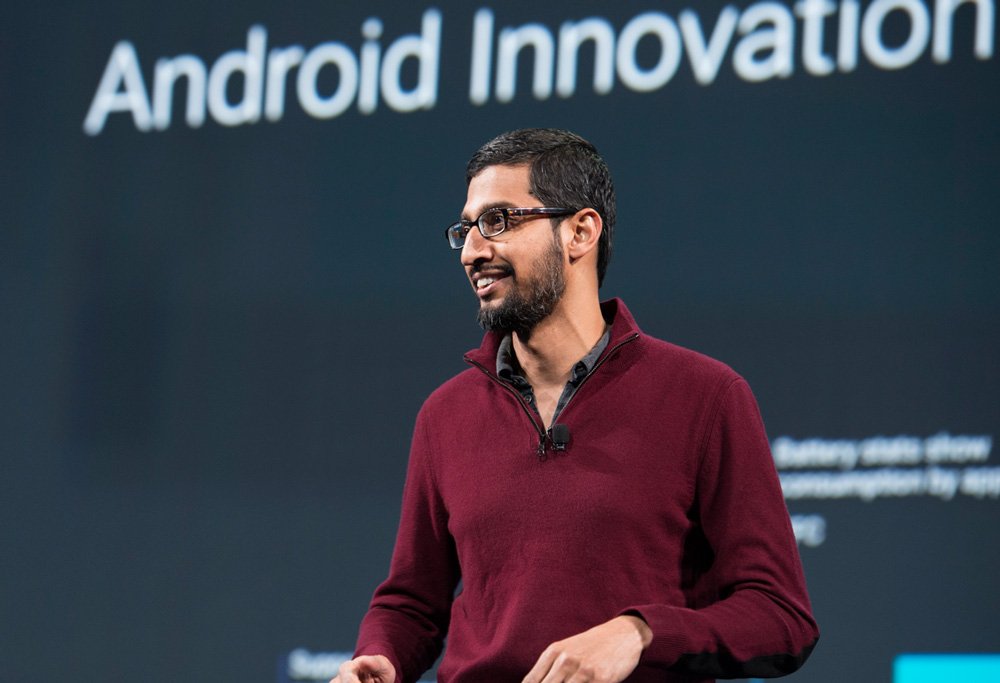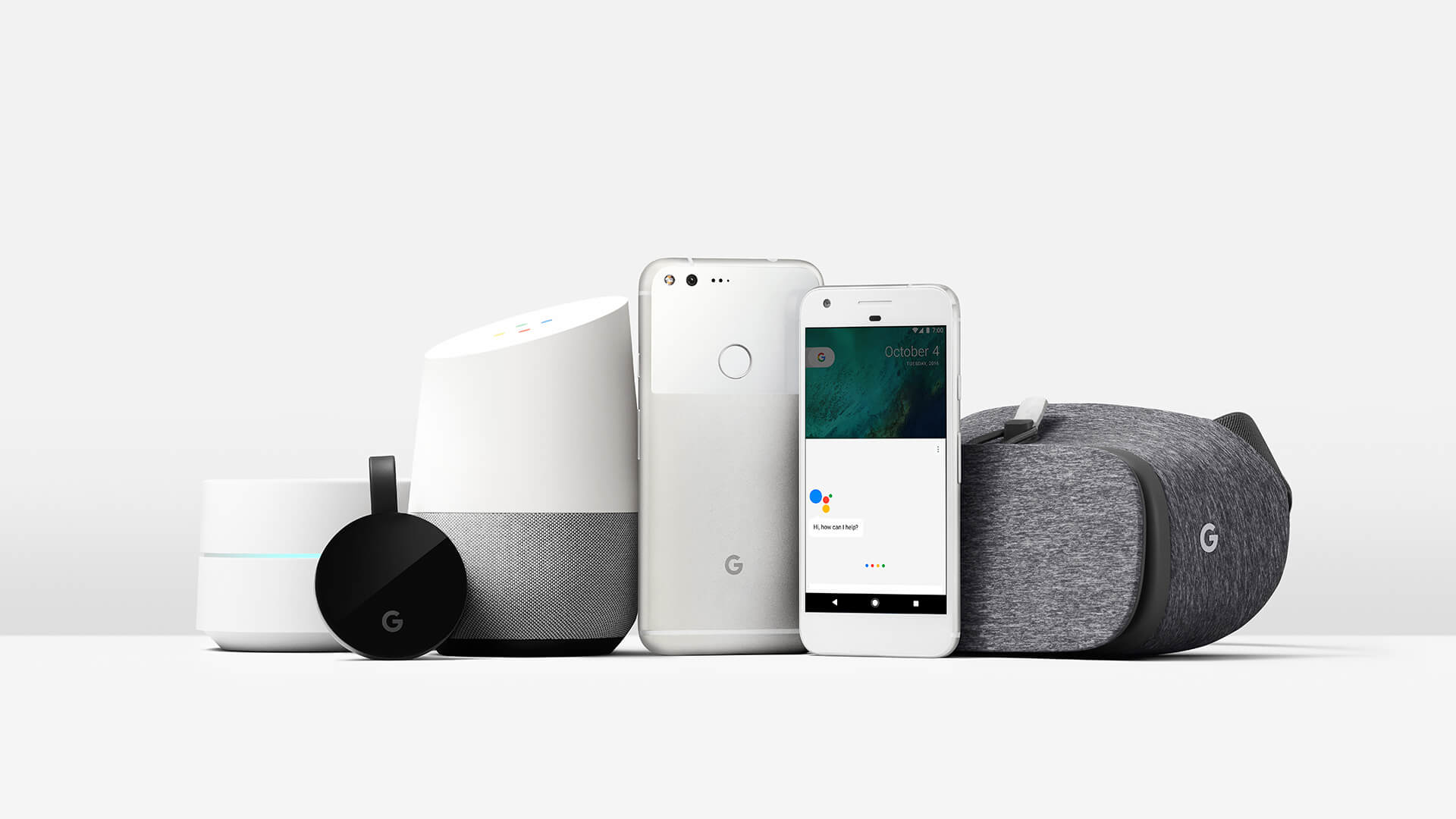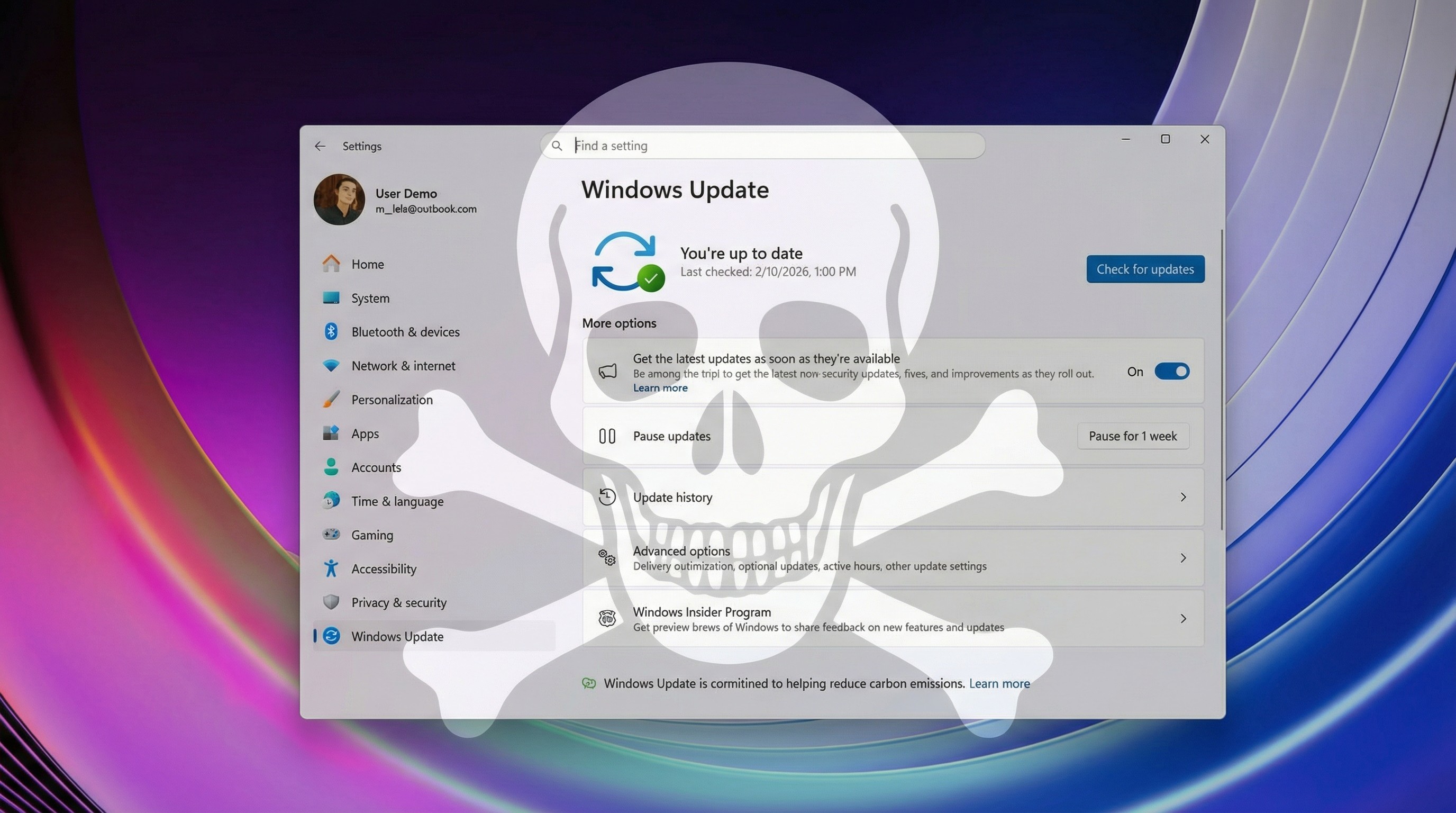Is Microsoft following Google's lead on AI?
"Mobile first, cloud first" has been Microsoft's CEO Satya Nadella's guiding mantra for the company since 2014. Things have recently changed, however.

All the latest news, reviews, and guides for Windows and Xbox diehards.
You are now subscribed
Your newsletter sign-up was successful
Nadella often says mobility is not about a single device but rather the mobility of a user's experiences across many devices supported by an intelligent cloud.
Google's CEO Sundar Pichai said in an interview just before Google I/O 2016 that he's "on a journey from mobile to AI."

The interview further expounded: "Pichai is also focused on shifting Google's journey from 'mobile-first to AI-first.'"
Coincidentally, during his keynote at Build 2017, Nadella shared that Microsoft too is moving from a mobile-first, cloud-first vision to one that places AI at the forefront.
So is Microsoft following Google?
The future of the PC is a family of devices connected by an intelligent cloud
Shift from mobile first, cloud first?
Nadella stated the following during his Build 2017 keynote:
All the latest news, reviews, and guides for Windows and Xbox diehards.
We're moving from what is today's mobile-first, cloud-first world to a new world that is going to be made of an intelligent cloud and an intelligent edge.[The] user experience is getting distributed across devices. It's no longer just mobile first ... it's not about one device, an app model for one device. The user experience itself is going to span all of your devices ...Your personal digital assistant by definition is going to be available on all your devices. [As] you move between devices it's going to be there helping you gets tasks done.
Nadella during his Build 2017 keynote.
Oddly, it seems that Nadella is defining mobile first as being centered around one device and a single app model, rather than how he historically defined it. Furthermore, his shift toward an intelligent cloud and intelligent edge vision now adopts the "mobility-of-experiences" definition he historically applied to his mobile-first, cloud-first vision.
He further explained this platform shift has an AI focus that benefits from investments in the "edge of the cloud." Serverless computing allows for pieces of logic to exist outside of the bounds of a virtual machine (VM) making that logic mobile. Existing on the "edge of the cloud" where hundreds of gigabytes of data can be processed for tasks such as those associated with an autonomous or connected car, computational power moves to the cloud's edge. Nadella explained that AI in such an environment is more distributed.
Clearly, Microsoft's "mobility-of-experiences" vision remains unchanged, though it resides beneath an AI-first umbrella. Furthermore, investments in AI have been a decades-long strategy for Microsoft. Given these facts, one must wonder if Nadella's public setting of a new pole star from mobile first, cloud first to an AI-focused guidance is a reactive measure to Google's clear dedication to and observable success in the same.
Google's all about AI
Like Microsoft, Google invested in first-party hardware but for different reasons.

Microsoft's hardware strategy positions a growing family of Windows 10 devices as an actual and aspirational medium for the Universal Windows Platform (UWP). Google's hardware strategy provides a platform for its AI vision.
Both Microsoft and Google are invested in hardware, though for different reasons
Google's earlier AI, Google's Now, was founded on the popular industry-leading Google search engine. Its ability to serve and anticipate a range of Android and iPhone users' needs made it a leading personal assistant.
Unlike its rivals, Apple's Siri and Microsoft's Cortana, however, it lacked attributes that made it personal. With Google Assistant, which is described as a user's personal Google, the Mountain View company has attempted to reframe the powerful search engine as every individual's personal Google.
Ok, Google Assistant
Google Assistant is more personal than its predecessor and gets to know users over time. During Google I/O 2016, the Google Home smart speaker, the Pixel smartphones, and Google's new messenger Allo were all introduced as platforms for the Assistant.
Truth be told, Google Assistant is as much a defensive move as it is an offensive move for Google. In an app- and AI-dominated world, "search" is no longer just a destination we go to; it's integrated into our apps and digital assistants. Google confronts this challenge to its core (ad revenue) business by making search personal and marketing Assistant as an evolution of the familiar Google search engine.
Google wants users to know its AI has the advantage of being based on the world's leading search engine. Rishi Chandra, vice president of product management for Google's living room devices, said: "There is no better engine of answering any question that you have. We fundamentally believe that."
Microsoft may fear that this is true given the number two position of Bing and consumers' general lack of awareness of Cortana.
Google's AI push
This year, Google expanded its AI vision by adding Google Assistant to smartwatches, Android TV, cars and the iPhone (joining Siri and Cortana). The company also expanded the Assistant's ability through Google Home and Chromecast. Visual responses from Google Home can now appear on the TV.
Google I/O 2017.
Google Lens, the company's AI-driven camera app, allows users to point their phones' cameras at people, places and things to glean information about them based on Google's extensive knowledge graph.
Like Microsoft and the 2016 private preview release and recent general release of the Cortana SDK, Google has released the Assistant SDK. Third parties can now integrate Assistant into their hardware as Cortana was incorporated into the Harman Kardon speaker.
Microsoft, Cortana and AI
In 2014, while the tech world was focused on health platforms, wearables and the rumored bigger iPhones, Microsoft was fine-tuning its AI vision. Cortana was about to make its debut on Windows Phone. Beyond a mere voice assistant, it was obvious then Cortana had potential as an intelligent UI for transient computing across Windows devices.
AI, bots and canvases: An evolving view of Microsoft's AI vison
In early 2014, few foresaw Microsoft's embrace of the iPhone and Android, however, though by July 2015 it was evident. Nor did I see, then, Cortana as a singular artificial intelligent UI for users' experiences across Windows, iOS and Android bound together by the Microsoft graph, as demonstrated at Build 2017.

Former Microsoft CEO Steve Ballmer gave a forward-looking description of the unifying effects of Microsoft's graph in 2013. His statements are specific to Windows devices but foreshadow Microsoft's Windows-as-a-hub, binding users' cross-platform experiences:
The experience we will deliver across all our devices centers on the idea of better connecting people with the things they care about most ... files, documents, photos, videos, notes, websites, snippets, digital history, schedules, tasks, and mail and other messages, combined with real-time information from our devices and services.It is more than what we think of as the shell today, and no current label really fits where we are headed.The shell will support the experiences layer and broker information among our services to bring them together on our devices in ways that will enable richer and deeper app experiences.
Microsoft's graph as a unifier of all platforms and experiences is a vital part of the company's AI and platform vision.
As a single underlying "super platform," Microsoft's graph enables Cortana to become the UI for experiences for all platforms. This approach to AI in conjunction with Cortana's democratization via the SDK makes Microsoft's strategy a worthy contender to Google's well-positioned Assistant.
Are Microsoft's AI efforts following Google's?
Microsoft began investments in machine learning, natural language processing, and deep neural networks long before Google became an AI-first company.
Ballmer and Gates pave way for Nadella's AI vision
In the following video, Microsoft Research's Eric Horvitz talks about the company's investments in AI:
During Build 2016, Microsoft introduced Conversation as a Canvas and the Bots Framework. Nadella also described Cortana as a meta-app that would interface with bots. Apps such as Skype, WhatsApp, Line, Slack and others were described as canvases for conversations that would connect with bots and AI, and human language was then identified as the UI.
This year's integration of iOS and Android into the Microsoft graph and Cortana's positioning as its UI is the progression of an AI vision at Microsoft that had early roots in Microsoft Bob.
So, no, Microsoft is not following Google's AI efforts.
I believe, however, that Nadella's statement shifting Microsoft from a mobile-first, cloud-first motto is a deliberate public acknowledgment of his awareness of how important and competitive AI has become and will be. Considering Microsoft's already considerable investments in and previously communicated plans for AI, I believe Microsoft wanted the industry and competitors to know that, like Google, Redmond is all about AI.
Must Read:
AI, bot's and canvases: Five-part series on Microsoft's AI strategy
The Internet of Intelligent Things: Google, Samsung, Microsoft and the new battlefront

Jason L Ward is a Former Columnist at Windows Central. He provided a unique big picture analysis of the complex world of Microsoft. Jason takes the small clues and gives you an insightful big picture perspective through storytelling that you won't find *anywhere* else. Seriously, this dude thinks outside the box. Follow him on Twitter at @JLTechWord. He's doing the "write" thing!




